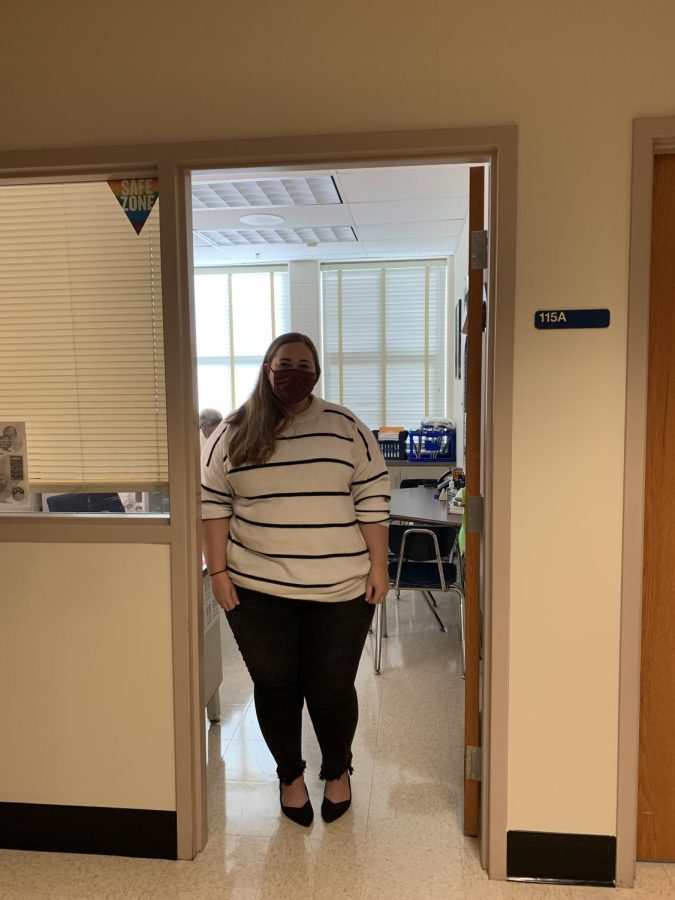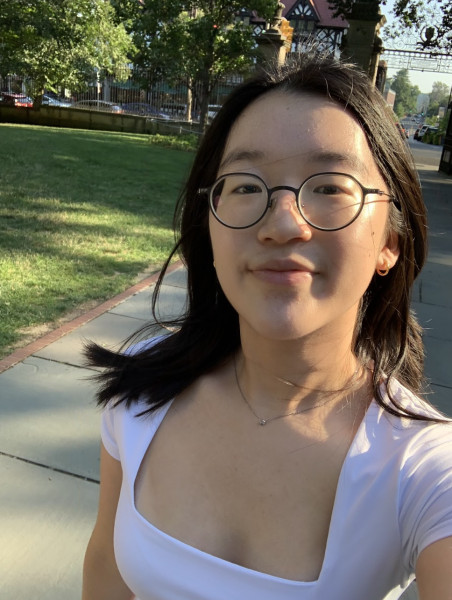School psychologist opens door for mental health
Lily Braun, the WCHS School Psychologist, is located in Room 115A. Working together with the Special Education and Counseling departments, she plays a crucial role in students’ wellbeings.
November 25, 2021
Walk down the main office hallway, pass the Health room, Mailroom and the College & Career Center. Keep walking down the counseling hallway and take a left into room 155A, right into an office unnoticed by the vast majority of students: the room of the WCHS school psychologist, Lily Braun.
School psychologists date back to 1918, when school attendance became mandatory in the United States. As students with different needs began entering schools, school-based mental health professionals trained in both psychology and education became in demand. Today, every MCPS school has access to a certified school psychologist to ensure that every student can learn in a safe, healthy and supportive environment.
“As the school psychologist, I work very closely with both the counseling department and the special education department,” Braun said. “I wear a lot of hats, which can involve working one-on-one with students to address academic or social, emotional and behavioral concerns, consulting with parents and teachers and doing what is called psychological assessments.”
Braun works with the Special Education team leader, Ms. Lesli Gillman, and the Special Education case managers, who are responsible for ensuring that the proper services and supports are in place. For students with an Individualized Education Plan (IEP), Braun helps determine what the students’ strengths and areas of need are. Using this information, she works with the case managers to develop a plan for the student to learn, be comfortable and socialize with others.
“My days always look different. Typically, Mondays through Wednesdays, I am in meetings to consult with students, families and teachers about IEP plans that require special education services or 504 plans for students in general education who need some accommodations to help them,” Braun said. “My time outside of that is usually spent with counseling, testing students or supporting students in need.”
Although school psychologists are very active in the school environment, many students remain unaware of this position. For the students who have heard of it, the differences between this role and that of the counselors in the counseling office can be hazy. While it is true that both of these positions work with students to address their needs, they each hold specific responsibilities as well.
“The biggest difference is that as a psychologist, I have additional training in administering cognitive and social, emotional and behavioral assessments,” Braun said. “Counseling is more involved with the general education students, whereas my focus is more so on working mainly with special education. We are both involved in both groups, but there are some differences in our primary focuses.”
Having this resource available for students is critical, especially within the pandemic-exacerbated mental health crisis. It has been stressed by both counseling services and Braun that students are always encouraged to reach out whenever they feel they need support, whether this be through email or scheduling an in-person chat.
“I didn’t know that this position existed before, but now that I do, I think that having another trusted adult students can turn to is invaluable,” WCHS sophomore Allison Zhang said. “Everyone deserves access to immediate help whenever they feel like they need support.”
However, another obstacle remains even after getting the word out: getting students to ask for help. Even as seeking out help from mental health professionals has become much more normalized in the past years, a palpable hesitation can remain.
“A lot of the time, there is still a stigma around students seeking help for dealing with stress and other mental health needs,” Zhang said. “I think that one way to approach this is to make it clearer that this is nothing to be ashamed of; advisory presentations and creating open spaces for discussions could help students feel more comfortable.”
As students struggle with the overload of assignment deadlines and neverending assessments, school is undeniably a source of stress. For those who feel overwhelmed or isolated, this is a reminder that help is only ever an email or knock away.
“I want to remind students that we know school can be very stressful,” Braun said. “But at the end of the day, your mental health and wellbeing are the most important things. If you feel like you are struggling, do not hesitate to contact me or your counselors. We are always here to support you.”



